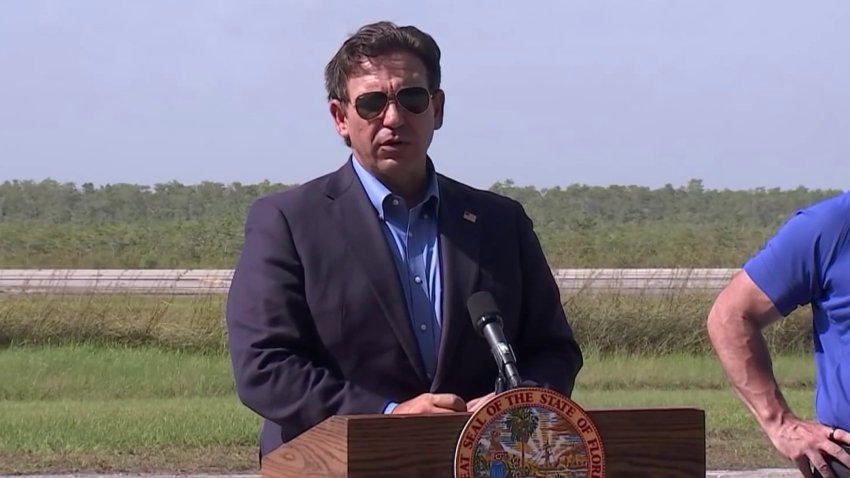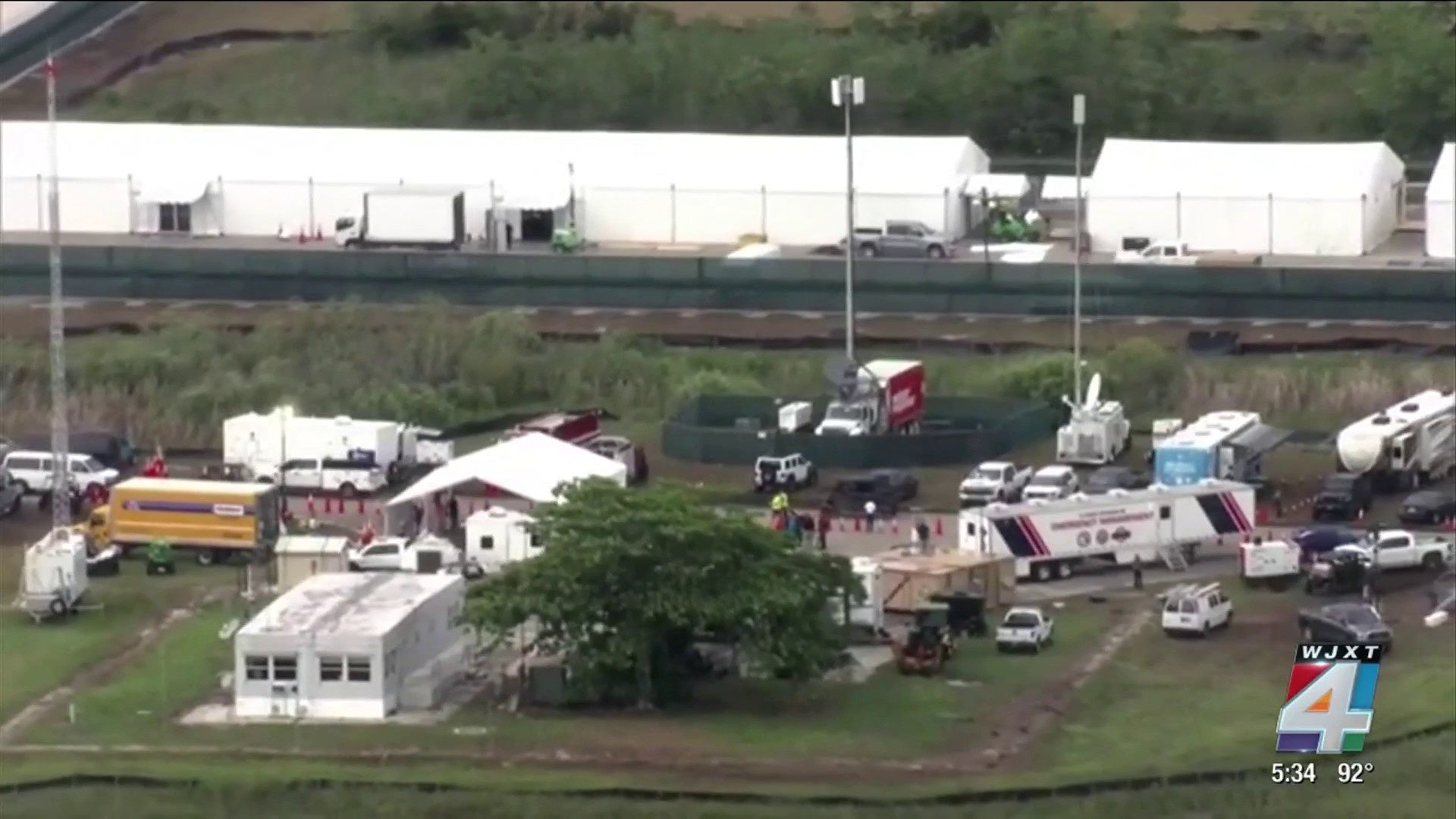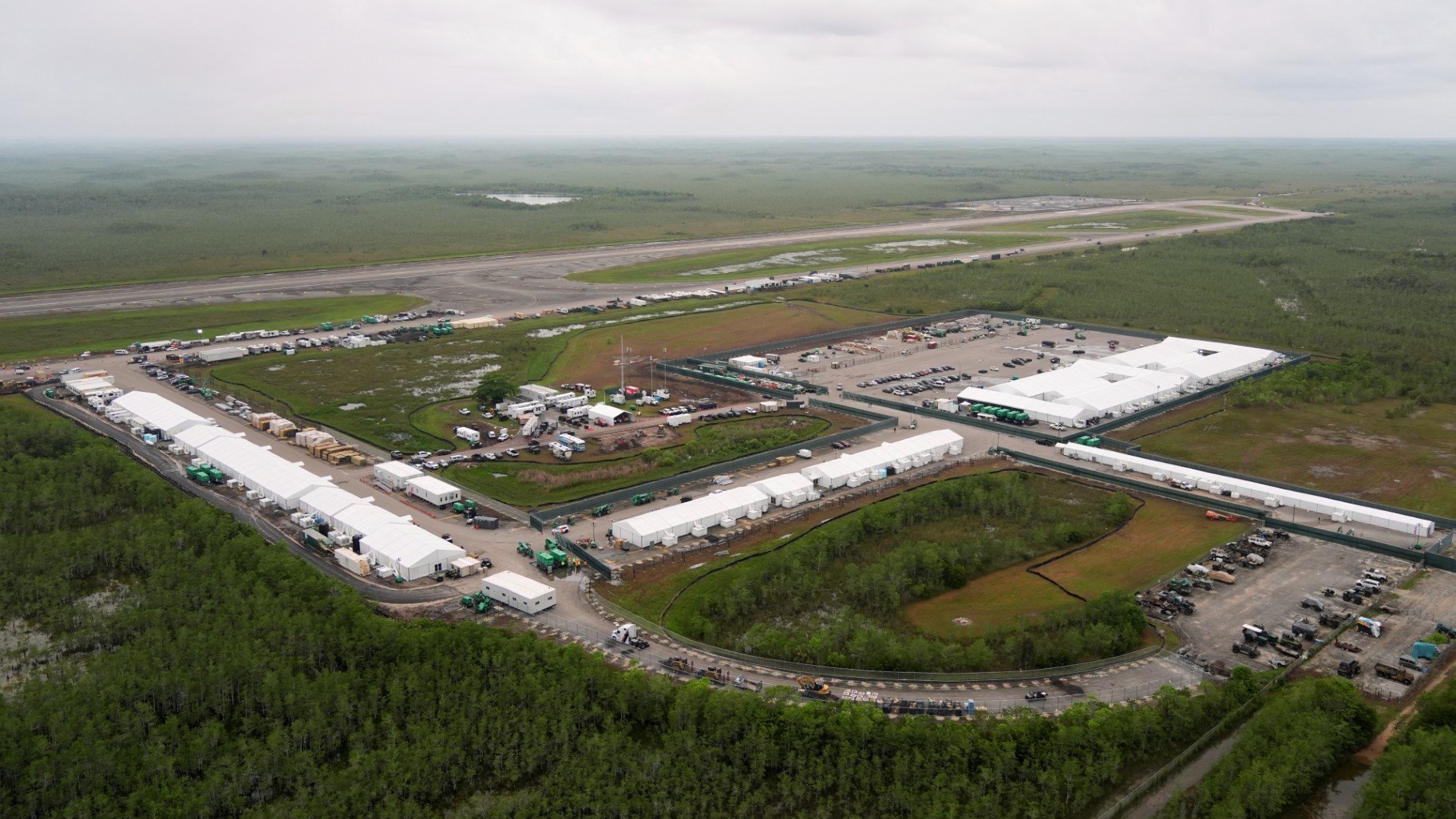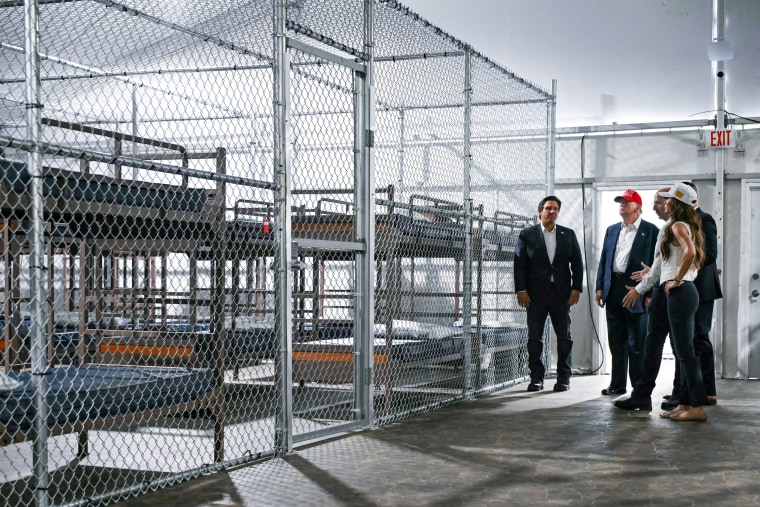Deportation Flights Begin from Florida's "Alligator Alcatraz" Detention Center
Florida Governor Ron DeSantis announced on July 25, 2025, that deportation flights have commenced from the "Alligator Alcatraz" detention center, located in the Everglades. Approximately 100 detainees have already been deported directly from the facility, with hundreds more being transported to federal deportation hubs in states such as Louisiana.
The Department of Homeland Security (DHS) is conducting these flights. Garrett Ripa, a top ICE official in Florida, confirmed that "two or three" deportation flights have already departed from the facility.
Expansion Plans and National Guard Immigration Judges

The "Alligator Alcatraz" facility currently houses around 2,000 detainees. Plans are in place to double its capacity to 4,000. DeSantis also stated that if the facility reaches full capacity, the state intends to open a second detention center in North Florida.
Florida is seeking federal approval to appoint Judge Advocate General Corps officers from the Florida National Guard as immigration judges at the Everglades site. This measure aims to expedite the deportation process. DeSantis anticipates approval "very soon."
Increased Immigration Arrests and Self-Deportation Program
Larry Keefe, executive director of Florida's Board of Immigration Enforcement, announced a "surge" in immigration arrests throughout the state. Local law enforcement officials have reportedly doubled their capacity to arrest individuals suspected of being in the U.S. illegally.
Approximately 1,800 Florida troopers have been deputized as federal immigration agents. Additionally, 1,200 sheriff's deputies and 650 state agents recently received credentials for federal immigration enforcement under 287(g) agreements.
Florida has also launched a pilot program to encourage undocumented immigrants to self-deport, which operates separately from federal initiatives. As of July 25, "a couple dozen" individuals had voluntarily left the U.S. under this program.
ACLU Lawsuit and Allegations of Inhumane Conditions

The American Civil Liberties Union (ACLU) filed a lawsuit last week, alleging a lack of legal counsel and due process violations for detainees at "Alligator Alcatraz." Various Florida nonprofits, medical professionals, and families of detainees have also called for the facility's closure.
These groups cite alleged inhumane conditions, including extreme heat, limited medical care, and unsanitary environments. Reports have surfaced of maggots in food, infrequent showers, and water entering tents used for housing.
Environmental Concerns and Lawsuits

Environmental groups have initiated legal action to halt construction at the facility. Their argument centers on the facility's location on land surrounded by protected areas, posing a potential threat to the sensitive Everglades ecosystem.
Timeline of Key Events

June 19, 2025: Florida Attorney General James Uthmeier publicly announced the plan for "Alligator Alcatraz."
June 21, 2025: Construction of the facility began.
July 1, 2025: President Donald Trump and Homeland Security Secretary Kristi Noem toured the facility.
July 3, 2025: The first group of immigrant detainees arrived at "Alligator Alcatraz," marking the start of its operations.
July 25, 2025: Governor Ron DeSantis announced the commencement of deportation flights from the facility.
"Alligator Alcatraz": Context and Purpose
"Alligator Alcatraz" is the nickname given to the new immigration detention facility situated at the Dade-Collier Training and Transition Airport, approximately 50 miles west of Miami, in the Florida Everglades. The name is a reference to the surrounding wildlife and the infamous Alcatraz Federal Penitentiary, intending to serve as a deterrent.
According to DeSantis, the facility's primary objective is to "facilitate increased frequency and numbers of deportations of illegal aliens." It is designed to house up to 5,000 migrants awaiting deportation.
Stakeholders Involved

Key stakeholders include:
- Florida Governor Ron DeSantis and his administration
- U.S. Department of Homeland Security (DHS) and Immigration and Customs Enforcement (ICE)
- President Donald Trump's administration
- Florida Division of Emergency Management (FDEM)
- Detainees and their families
- Immigration lawyers and civil rights organizations (e.g., ACLU)
- Environmental groups
- Miccosukee and Seminole Native American Tribes
- Florida Republican Party
Financial and Operational Details

The estimated annual operating cost of the facility is $450 million. Florida is seeking reimbursement from the federal government, potentially through FEMA's Shelter and Services Program, which has approximately $625 million available.
The facility currently accommodates "a couple thousand" detainees, with plans to expand to around 4,000. Security measures include over 200 security cameras, more than 5 miles of barbed wire, 400+ security personnel, and 200 National Guard members.
Conflicting Accounts of Conditions

Florida officials, including FDEM director Kevin Guthrie, assert that the conditions at "Alligator Alcatraz" meet or exceed standards. They cite hot meals, 24/7 medical care, recreational spaces, laundry facilities, and air-conditioned housing units.
However, detainees have reported contrasting experiences, including poor and unsanitary conditions, food containing maggots, limited showers, and restricted access to legal representation.
Controversies and Reactions

The facility has drawn significant criticism and sparked several controversies:
Humanitarian Concerns: Civil rights and human rights advocates have condemned the facility as "inhumane" and a "concentration camp" due to the alleged poor conditions, lack of legal access, and the remote location within the Everglades.
Due Process Concerns: Immigration lawyers argue that detainees are not granted sufficient access to legal counsel, leading to lawsuits citing due process violations.
Environmental Impact: Environmental groups and Native American tribes have voiced strong objections, asserting that the facility threatens endangered species habitat and violates environmental and tribal cultural-resource protections.
Emergency Powers Justification: Critics question the use of emergency powers to expedite construction, viewing it as an overreach and environmental risk.
Funding Controversy: Concerns have been raised about the use of state and potential FEMA funds for the facility, with critics suggesting it diverts resources from other critical areas.
Deterrent vs. Cruelty: While state officials designed the facility's remote location and name to deter illegal immigration and encourage self-deportation, critics condemn it as cruel and inhumane.
Lack of Transparency: The DeSantis administration's decision to remove full contracts with facility contractors online, citing proprietary information, has drawn criticism for lack of transparency.
Comparison to Historical Abuses: Some critics have likened the facility to "concentration camps" or "Alligator Auschwitz," drawing parallels to historical instances of human rights abuses.
Public Opinion: Polling data from July 2025 indicated that 48% of Americans opposed the detention center, with 33% supporting it and 18% unsure. Later polls suggested lower approval rates, particularly among women.